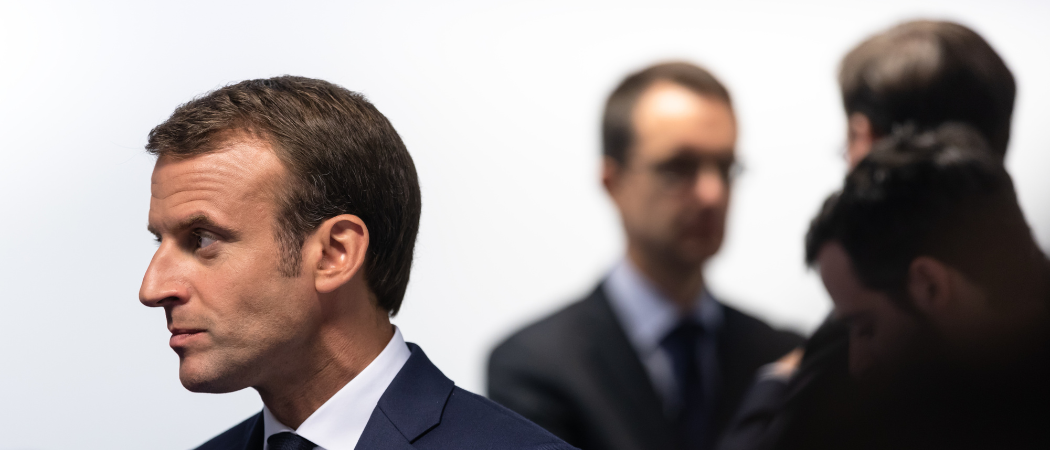Implementing these innovation priorities will require a doubling of the EU budget, French president says

French President Emmanuel Macron. Photo credits: BigStock
EU member states have successfully cooperated on semiconductors, batteries and hydrogen, but a much more ambitious innovation and industrial policy is now needed in other strategic sectors, French president Emmanuel Macron told a gathering of French ambassadors in Paris on Monday. “We need to go much further and much harder on artificial intelligence, cleantech, and defence,” he said.
The 100-minute speech, in which Macron called for Europe to assert its place in the world, showed the French president’s ambition to continue driving the EU policy agenda, even as his control over domestic politics becomes ever more fragile.
An AI summit in Paris on February 10 and 11 will host world leaders, businesses and other stakeholders, building on previous summits at Bletchley Park in 2023 and in Seoul last year. In addition to discussions around public interest, the focus will be on innovation and how to attract talent to Europe, Macron said.
Implementing all of these priorities will require a significant investment effort at EU level, “practically a doubling of the budget,” Macron said. He has been one of the loudest voices pushing for joint EU debt, and for a savings and investments union to leverage private savings.
Commission president Ursula von der Leyen has made the latter a top priority, appointing Portugal’s Maria Luís Albuquerque as Commissioner for Financial Services and the Savings and Investment Union.
Convincing member states to play along could prove more difficult, and joint debt especially is politically sensitive. It remains to be seen whether Macron still has sufficient political capital to sell other EU leaders on his vision.
His influence in the EU has been dwindling since his decision last year to call early parliamentary elections and the subsequent collapse of prime minister Michel Barnier’s government. Combined with political uncertainty in Germany, it has placed a question mark over the role of the historically influential Paris-Berlin axis.
Simplification
When it comes to regulations, these are often passed with good intentions, but when the rest of the world doesn’t follow, the result is a less competitive Europe, Macron said.
“We invest less, we innovate less, but we over-legislate.” Instead, “We need a massive regulatory pause, but we also need to go back on those regulations, including recent ones, which hinder our ability to innovate.”
Here, Macron has the support of fellow heads of state and government. In November’s Budapest declaration on a new European competitiveness deal, EU leaders called for a “simplification revolution”.
Following this, Von der Leyen told the European Parliament one of the first steps in her new mandate will be an “omnibus legislation”, which would modify several regulations at once to cut red tape.
Simplification also means working to complete the single market, especially for digital technologies, energy, and telecommunications, one of von der Leyen’s commitments
In his speech Macron said: “If we want our start-ups, our giants, our artificial intelligence champions to be part of the international competition, their domestic market must not be the French market, but the EU market.”
Wake-up call
On several occasions during the speech, Macron urged Europe to “wake up” and become less “naïve”, including when it comes to economic security.
He defended the Commission’s decision to impose tariffs on Chinese electric vehicles, which it judged to benefit from unfair subsidies, and called for even stricter rules to ensure that a certain percentage of electric vehicle components are produced in Europe. Without such measures, “manufacturers will go and find Chinese subcontractors and then assemble in Europe,” he said.
Macron also wants to address Europe’s dependence on imports of defence equipment from the US, calling for “a massive investment programme” and a preference for European companies. This will be increasingly urgent in the coming decades as the US turns its geopolitical focus from protecting Europe to the South China Sea, he said.
Discussions are ongoing about a proposed European Defence Industry Programme (EDIP), and Macron said, “We keep talking like we were ten years ago. The question is whether Europeans want, in the next 20 years, to produce what will be needed for their security, or not.”
The €1.5 billion set aside for EDIP up to 2027 is far from the €100 billion originally suggested by former Internal Market Commissioner Thierry Breton. The question of funding will come up again during negotiations over the next long-term EU budget.
There is already some support for Macron’s ideas. In its memos to EU leadership following the EU elections, the Brussels-based think tank Bruegel argues that supporting Ukraine would justify common borrowing. The paper also suggests “strengthening the EU’s comparative advantage in clean tech” through mission-oriented innovation support.
However, the think tank also calls on the EU to “continue to be a force to keep world markets open and fight protectionism”, while pushing to reform World Trade Organization rules.





 A unique international forum for public research organisations and companies to connect their external engagement with strategic interests around their R&D system.
A unique international forum for public research organisations and companies to connect their external engagement with strategic interests around their R&D system.